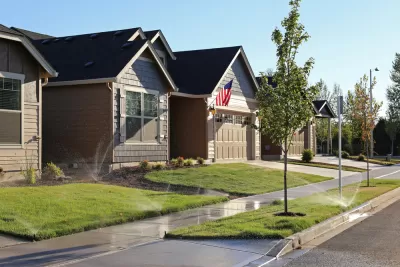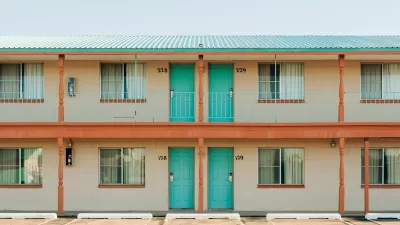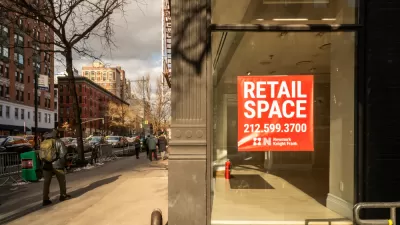Suburban neighborhoods are faring better than neighborhoods in cities when it comes to a range of economic status indicators.

A recent paper in the journal Urban Studies looks at the status of urban and suburban neighborhoods in metropolitan areas throughout the United States to better understand their trajectories. The findings show that the perception of cities on the rebound and suburbs in decline does not match what is happening on the ground, writes Richard Florida:
In contrast to the idea of a Great Inversion—a shift of affluence back to the cities and poverty out to the suburbs—[Whitney] Airgood-Obrycki finds that suburban neighborhoods overwhelmingly outperformed their urban counterparts during the four-decade period spanning 1970 to 2010.
Incomes, home values, and education levels are higher in suburban neighborhoods compared to urban ones. Urban neighborhoods also were less stable over time when considering both types of neighborhoods in the same quartiles. Urban neighborhoods with lower economic status were more likely to stay at those lower levels and high-status ones more often saw declines.
Florida notes that the dynamics of suburbs still remain complicated, with newer suburbs showing most of the economic gains. But the patterns identified in this study challenge popular assumptions about suburbs and cities. "Many urban centers have gentrified, and poverty and economic dislocation have spread into the suburbs. Despite all of this change, the most affluent places in America largely remain in its more recently developed suburbia," says Florida.
FULL STORY: The Persistent Economic Advantage of America’s Suburbs

Alabama: Trump Terminates Settlements for Black Communities Harmed By Raw Sewage
Trump deemed the landmark civil rights agreement “illegal DEI and environmental justice policy.”

Study: Maui’s Plan to Convert Vacation Rentals to Long-Term Housing Could Cause Nearly $1 Billion Economic Loss
The plan would reduce visitor accommodation by 25% resulting in 1,900 jobs lost.

Planetizen Federal Action Tracker
A weekly monitor of how Trump’s orders and actions are impacting planners and planning in America.

Wind Energy on the Rise Despite Federal Policy Reversal
The Trump administration is revoking federal support for renewable energy, but demand for new projects continues unabated.

Passengers Flock to Caltrain After Electrification
The new electric trains are running faster and more reliably, leading to strong ridership growth on the Bay Area rail system.

Texas Churches Rally Behind ‘Yes in God’s Back Yard’ Legislation
Religious leaders want the state to reduce zoning regulations to streamline leasing church-owned land to housing developers.
Urban Design for Planners 1: Software Tools
This six-course series explores essential urban design concepts using open source software and equips planners with the tools they need to participate fully in the urban design process.
Planning for Universal Design
Learn the tools for implementing Universal Design in planning regulations.
Caltrans
Smith Gee Studio
Institute for Housing and Urban Development Studies (IHS)
City of Grandview
Harvard GSD Executive Education
Toledo-Lucas County Plan Commissions
Salt Lake City
NYU Wagner Graduate School of Public Service





























